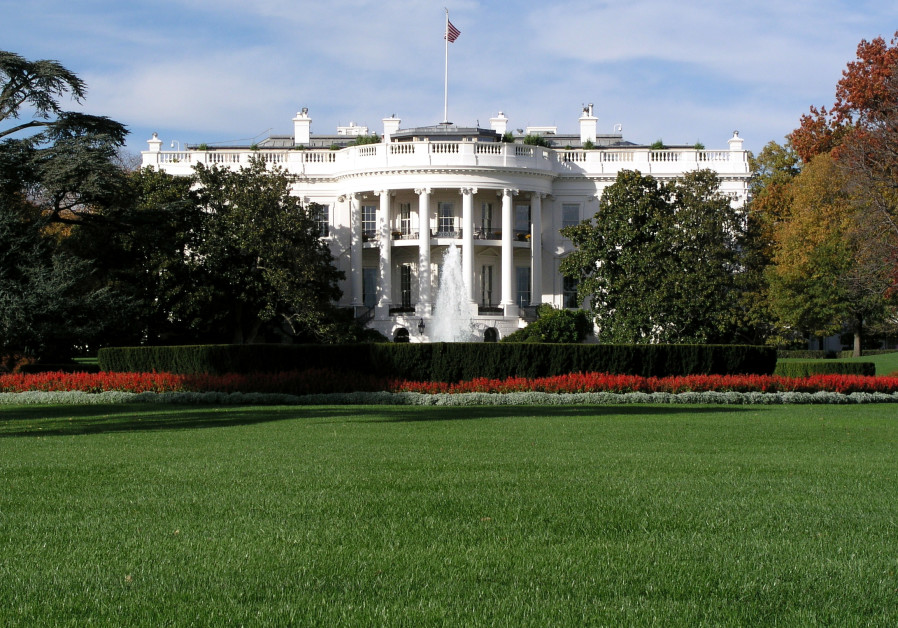Washington not asking Friedman to ‘walk back’ comments about annexation

The White House is pictured in Washington D.C.. (photo credit: REUTERS)
The White House has given no indication that it will ask US Ambassador David Friedman to walk back comments in a New York Times interview published on Saturday saying that Israel has the right to retain some of the West Bank.
Though the comments incensed the Palestinian Authority and led to calls for his dismissal by the Israeli Left, inquiries by The Jerusalem Post indicate that there is no intention in Washington to ask for him to issue any type of retraction.
“Under certain circumstances, I think Israel has the right to retain some, but unlikely all, of the West Bank,” Friedman said in the interview.
The comments continued to make waves on Monday, with Palestinian Foreign Minister Riyad al-Maliki saying in Poland that Friedman’s comments were intended to “help Netanyahu have the courage” to annex territory.
“This is really something that the international community has to stand up to,” he said.
In the days before the April 9 election, Netanyahu – in a push for Right-wing voters – said Israel would move to apply sovereignty to settlements, both settlement blocs and isolated settlements.
Maliki said that if Israel does annex territory, it should be sanctioned by the international community. Or, he said, is Israel “really the holy cow that no one could really touch?”
Friedman, in his remarks to the Times, did not use either the words “unilateral” or “annexation.”
Regardless, his words continued to stir a political debate in Israel. While the Left slammed him on Saturday and Sunday, right-wing politicians and others as well came to his defense on Monday.
Friedman, said Regional Cooperation Minister Tzhai Hanegbi in a Facebook post, gave “refreshing” articulation to an evolution in the thinking among many in the US, Europe, Arab states and Israel “that applying Israeli law to settlements in Judea and Samaria is a natural step after 52 years of Palestinian intransigence.”
Economy Minister Eli Cohen of Kulanu tweeted that there was no need for Friedman to apologize, because he did not make a mistake.
“Now, after 52 years, the time is ripe to start extending Israeli sovereignty, at this stage, over the settlement blocs,” Cohen wrote, adding that sooner or later, other countries “will recognize it.”
Yoaz Hendel, on the right flank in the Blue and White Party, said in a Kan Bet Radio interview that Friedman’s comments were in line with his party’s platform, and that there is currently a friendly administration in Washington that Israel should wisely use to its advantage.
Hendel tweeted that the Trump administration was taking a “sober” approach to the Israeli-Palestinian conflict, and that Friedman’s comments aligned with the Allon Plan – a plan put forward by minister Yigal Allon almost immediately after the Six Day War that would have Israel retain areas of the West Bank necessary to provide it with defensible borders.
And United Torah Judaism’s Moshe Gafni, during a Kan Bet Radio interview, said that while in the past his party was opposed to annexation because of a concern about how it would go over in Washington and other parts of the world, Friedman’s comments may signal that this idea is not one that would generate as much strident opposition inside the US administration as it once might have.
Now is the time to join the news event of the year – The Jerusalem Post Annual Conference!
For more information and to sign up, click here>>







Comments are closed.